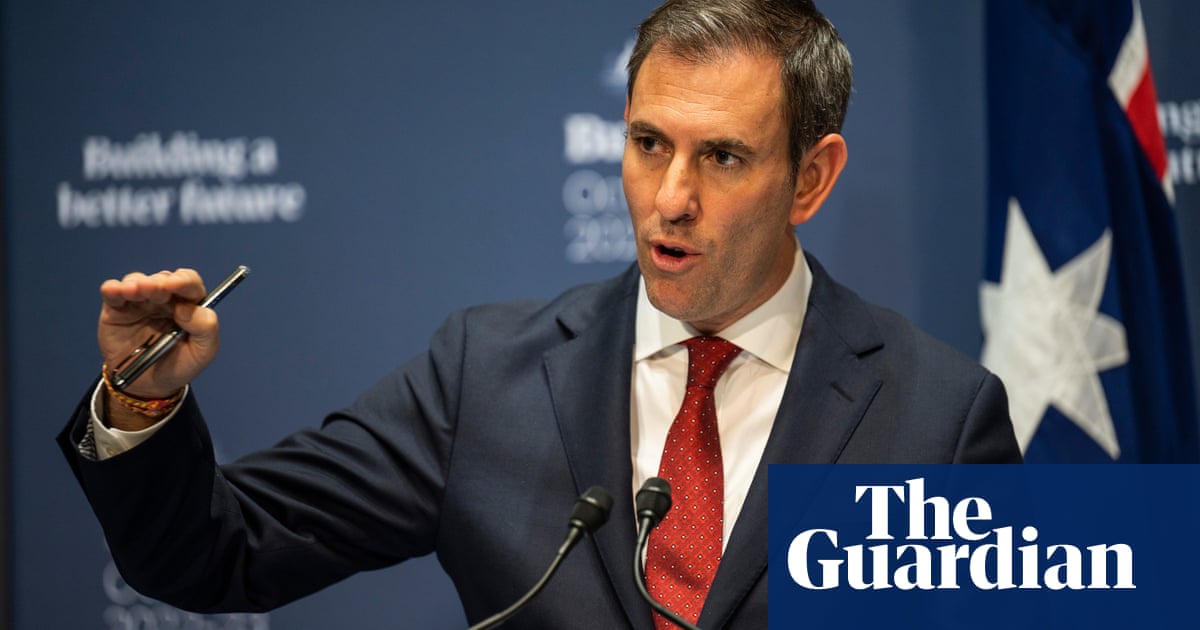Australia rises to second in world budget management rankings, IMF data shows

- by Admin
- April 17, 2024

Australia’s overall budget balance is the second strongest among G20 nations, behind only Canada, according to the International Monetary Fund’s latest fiscal monitor.
The IMF’s half-yearly update, released on Wednesday night, found Australia’s overall budget balance came in at -0.9% of gross domestic product in 2023, with only Canada’s budget position (-0.6%) faring better.
Australia has shot up the rankings in the latest data, having placed equal 14th in 2021 and seventh in 2022, when it fared worse than countries such as Korea, Russia and Saudi Arabia.
The treasurer, Jim Chalmers, and the finance minister, Katy Gallagher, hailed what they described as a “remarkable achievement” in Australia’s budget management since they took office. The balance includes the budgets of the states and the commonwealth.
“Our responsible management is ensuring that fiscal policy is taking the pressure off inflation when it is at its highest,” the ministers said in a statement.
“The Albanese government delivered Australia’s first surplus in 15 years in 2022-23, achieving a $100bn turnaround in the forecast inherited from the former government. A second surplus in next month’s budget remains within reach.”
Use of Australia’s overall budget balance is just one gauge of economic management. By net debt, Australia’s tally amounted to 28.3% of GDP in 2023, placing it fourth among the G20 nations that the IMF was able to track.
Still, Australia’s economy has fared better than most counterparts coming out of the Covid-19 pandemic, even if it might not have scaled the heights of 2011, when Euromoney magazine dubbed Wayne Swan – Chalmers’ boss at the time – as the best treasurer in the world.
Australia’s current silver placing among G20 nations may not last long.
On the IMF’s projections, the country will slip to fourth in 2024 for its general government balance – at -1.3% of GDP – even if the commonwealth notches back-to-back budget surpluses of its own. Canada, Korea and even crisis-hit Argentina should deliver better balances this year.
The IMF said that while the global economy was stabilising, many nations would “continue to struggle with the legacies of high debt and deficits while facing new challenges”.
It encouraged more “fiscal tightening” to support the “last mile” of disinflation.
“Slowing growth and financial turbulence in China could weigh on global growth and trade, posing fiscal challenges for countries with strong trade and investment linkages,” the IMF said, without naming nations.
after newsletter promotion
Chalmers said on Wednesday that China, which is easily Australia’s largest market, “has been a big feature of our discussions as we put the budget together”.
“The property sector in China has been a really significant factor in the slowing of the Chinese economy,” Chalmers told ABC’s RN Breakfast. “And obviously given the structure of our economy and our trading relationships with China, we’re not immune from the way that the Chinese economy has slowed considerably.”
The IMF also noted 2024 was shaping up as the “Great Election Year”, with 88 economies or economic areas, representing more than half of the world’s population and GDP, holding elections.
“Support for increased government spending has grown across the political spectrum over the past several decades, making this year especially challenging, as empirical evidence shows that fiscal policy tends to be looser, and slippages larger, during election years,” the IMF said.
Most commentators expect the Albanese government to hold off elections until 2025 when its term expires.
The Latest News
-
December 23, 2024Australian tennis star Purcell provisionally suspended for doping
-
December 23, 2024Australian tennis rocked as doubles champion banned
-
December 23, 20242025 WAFL/W fixtures released as huge year awaits
-
December 23, 2024AFLW champion Erika O’Shea wants more success with North Melbourne and Cork | The Southern Star
-
December 23, 2024Video: Russia captures ‘Australian’ man fighting for Ukraine, Canberra opens probe




